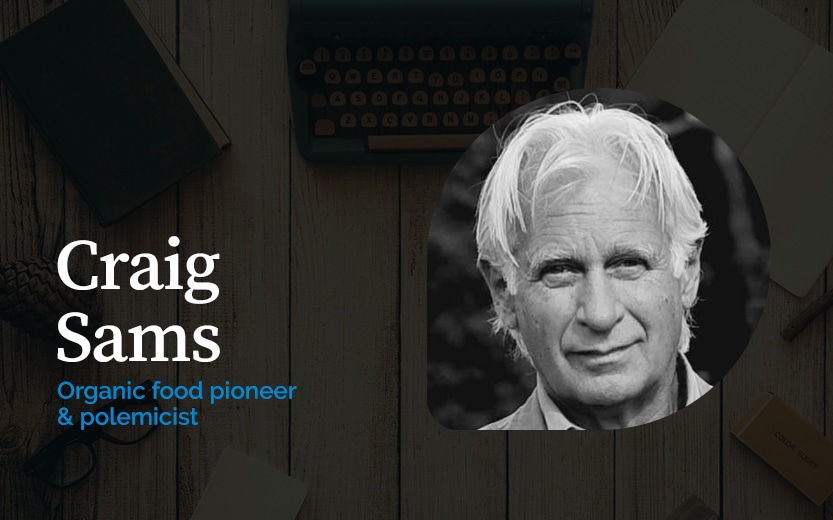As the nation ponders the Brexit question, Craig Sams reflects on the EU’s inglorious record on food and health
I was around when we joined the EU in 1973. What was the impact on food and health? Here’s my summation of the good, the bad and the ugly – well the last two anyway.
The first thing was that land prices shot up. The Common Agricultural Policy (CAP) guaranteed subsidies favouring larger landholdings. Overnight land became an investment asset, its value underpinned by the EU. City money poured in, paying contract farming companies to operate monoculture on vast tracts of land. They cut down the hedgerows, drained the wetlands and sprayed out biodiversity. Pesticide and fertilizer use shot up. In the early 1970s Exchange and Mart listed smallholdings in Britain. When one came up for sale City money would buy it, consolidate the 15-50 acres into an industrialized landholding and sell off the house as a second home. The deck was stacked against small farmers in favour of large chemical-dependent enterprises. The ads for smallholdings disappeared.
Jam could no longer be called jam. The EU list of permitted sweeteners included white sugar, brown sugar, ‘sugar syrup containing not more than 0.2% sulphur dioxide preservative’, glucose syrup and another ten industrial sweeteners. Despite our urgent representations to include ‘fruit juice and fruit juice concentrates’, the EU refused to put them on the list. So Whole Earth had to rename our healthier jam ‘pure fruit spread.’ Lobbyists in Brussels had made sure the deck was stacked in favour of EU-subsidized sugars.
The ongoing suppression of herbal and natural medicine began. The HFMA fights doughtily to protect people’s right to VMS and herbal remedies, but it can be a losing battle with the EU banning much-loved products for obscure reasons, not unrelated to pharma pressures on unelected commissioners.
Hydrogenated fat got a major shot in the arm. It popped up everywhere as a replacement for naturally hard fats like coconut oil or palm oil. This plasticky heart-destroying material was made from rapeseed oil, subsidized to the eyeballs by the CAP. EU levies on imports of palm oil and coconut oil guaranteed that hydrogenated fat was always £50-60 a tonne cheaper than natural fats. Then the medical industry weighed in, encouraging consumption of transfat-rich margarines. By the late 1990s, when the evidence against hydrogenated fat was overwhelming, the EU still wouldn’t budge until Bantransfats.com and the Danish Government finally made transfats unmarketable. So the EU brought out the Renewable Transport Fuels Obligation which required member states to mix rapeseed oil with diesel to burn up this food that nobody wanted.
The EU took over organic regulation in 1993 and bogged it down in bureaucracy. In the US if you want an organic no-calorie sweetener, processed from organic raw materials, to be permitted in organic food, you apply to the National Organic Standards Board which looks at the evidence and decides in a matter of weeks. In the EU you have to go to the Soil Association which consults other certifying bodies, then makes a representation to DEFRA, who makes a representation to Brussels who then consults with the other 25 ministries of agriculture in member states, who consult with certifying bodies who consult with licensees and then feed back to Brussels after a few years, usually with someone dissenting and deadlock. Organic food in the EU has to be full sugar because regulatory constipation bars safe organic sweeteners. US makers of low-calorie products can sell in the EU due to the US-EU equivalence agreement, where minor differences in organic standards are just overlooked.
I live in Hastings, where the fishermen operate small boats. The EU gives 97% of the fish quotas to the big trawlers that destroy the sea bed and 3% to the small boat fishermen who are responsible for 50% of employment of fishermen. Our fishermen have to throw fish overboard or buy extra quota from the trawler operators to whom Brussels lobbyists have given more quota than they can possibly use.
For 19 years the EU Court of Auditors has refused to give the all clear to the EU’s accounts because of money that just disappears out of the CAP, which eats up half the EU budget. Unelected and unaccountable, they just laugh at any attempt to stop the corruption, most of which is in farm subsidies.
I’m not saying that Brexit would be any better, mind. Given the level of competence at Westminster, it could be argued that things would be even worse if we let power and responsibility reside there rather than Brussels. Nonetheless, it’s unfortunate that our food and farming are being held hostage by unaccountable bureaucrats, be they in Brussels or closer to home











